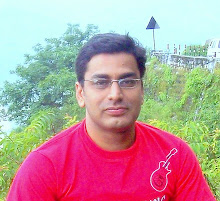For liberty's sake, POTA must go
Tuesday, July 22, 2008
 IN AN OVERALL sense, India deserves its international reputation as a country that has valued its democracy and basic liberties in a more sustained and effective way than most other developing countries. Taking stock of the country's performance over half a century of Independence, the economist Amartya Sen offered the assessment in 1997 that "perhaps the biggest achievement is in the maintenance of democracy." India's fourth Nobel Laureate pointed to the press remaining "largely free," civil rights staying in place, and the military staying "in the barracks rather than ruling our lives" as "achievements of considerable distinction." Various others, in India and abroad, have echoed this judgment.
IN AN OVERALL sense, India deserves its international reputation as a country that has valued its democracy and basic liberties in a more sustained and effective way than most other developing countries. Taking stock of the country's performance over half a century of Independence, the economist Amartya Sen offered the assessment in 1997 that "perhaps the biggest achievement is in the maintenance of democracy." India's fourth Nobel Laureate pointed to the press remaining "largely free," civil rights staying in place, and the military staying "in the barracks rather than ruling our lives" as "achievements of considerable distinction." Various others, in India and abroad, have echoed this judgment.
Two serious qualifications need to be entered here. First, India's democratic achievement is relative in the sense that most other developing countries, starting with countries in the immediate South Asian neighbourhood, have done demonstrably worse. Secondly, for much of the 56 years of Independence, various extraordinary powers the Indian state has conferred on itself through special legislation have encroached on the bedrock of the fundamental "Right[s] to Freedom" guaranteed by the Constitution under Articles 19, 20, 21 and 22. These vital provisions relate to protection of freedom of speech and expression, life and personal liberty, and basic individual rights in respect of arrest and detention, and conviction for offences. The list of mischievous encroachments over the decades is long. It includes draconian laws for preventive detention, `maintenance of internal security', `prevention of unlawful activities', the notorious Terrorist and Disruptive Activities (Prevention) Act, which remained on the statute books between 1987 and 1995, and the even more notorious Prevention of Terrorism Act, 2002.
In targeting these basic democratic rights, the Bharatiya Janata Party, supported by opportunist and short-sighted allies, has proved a worthy successor to the party that enacted the Emergency and continues to be, on the whole, apologetic about that benighted, but fortunately short-lived (June 1975-March 1977), coup against democracy. The same arguments about `misuse' of extraordinary powers and `excesses' heard in Congress circles in defence of the Emergency even after its revocation are being heard in the specious distinction the BJP tries to make between the `use' and `misuse' of POTA provisions. While doggedly defending POTA as an anti-terrorism instrument, the Central Government seems to have veered round to the view that the use of Section 21 of the Act against those like Vaiko (a BJP ally who has been languishing in jail for well over a year for reiterating in a public meeting a general statement made in Parliament in support of the Liberation Tigers of Tamil Eelam) is a misuse. So, the BJP concedes, was the use of POTA to put behind bars the independent Uttar Pradesh MLA, Raja Bhaiyya, by the Mayawati regime. The incarceration of R.R. Gopal, Editor of the Tamil magazine Nakkheeran on highly implausible POTA charges; the threat by the Tamil Nadu Government to use POTA as well as the Unlawful Activities (Prevention) Act against a pro-LTTE Central Minister, M. Kannappan; and the death sentence awarded to S.A.R. Geelani, a Delhi University lecturer, for an apparently marginal role in the December 2001 terrorist attack on Parliament are other instances that cause serious concern. Unfortunately, the higher judiciary has not done what the Constitution expects it to do: rush to the aid of fundamental rights. Just as the Supreme Court badly let down the people and the cause of democracy during the Emergency, the higher judiciary went along with TADA and appears, thus far, to be going along with POTA. The devil, it seems, is not in the detail or even in the misapplication of extraordinary powers. It is in the authoritarian mindset, expressed and engendered by anti-libertarian enactments like POTA, that civil liberties are dispensable in this era of the `global war against terrorism'. Political India must wake up to the truth that the only use of POTA can be its misuse. For the sake of liberty and democracy, it must do away with this awful enactment root and branch — as soon as the opportunity arises.



0 comments:
Post a Comment